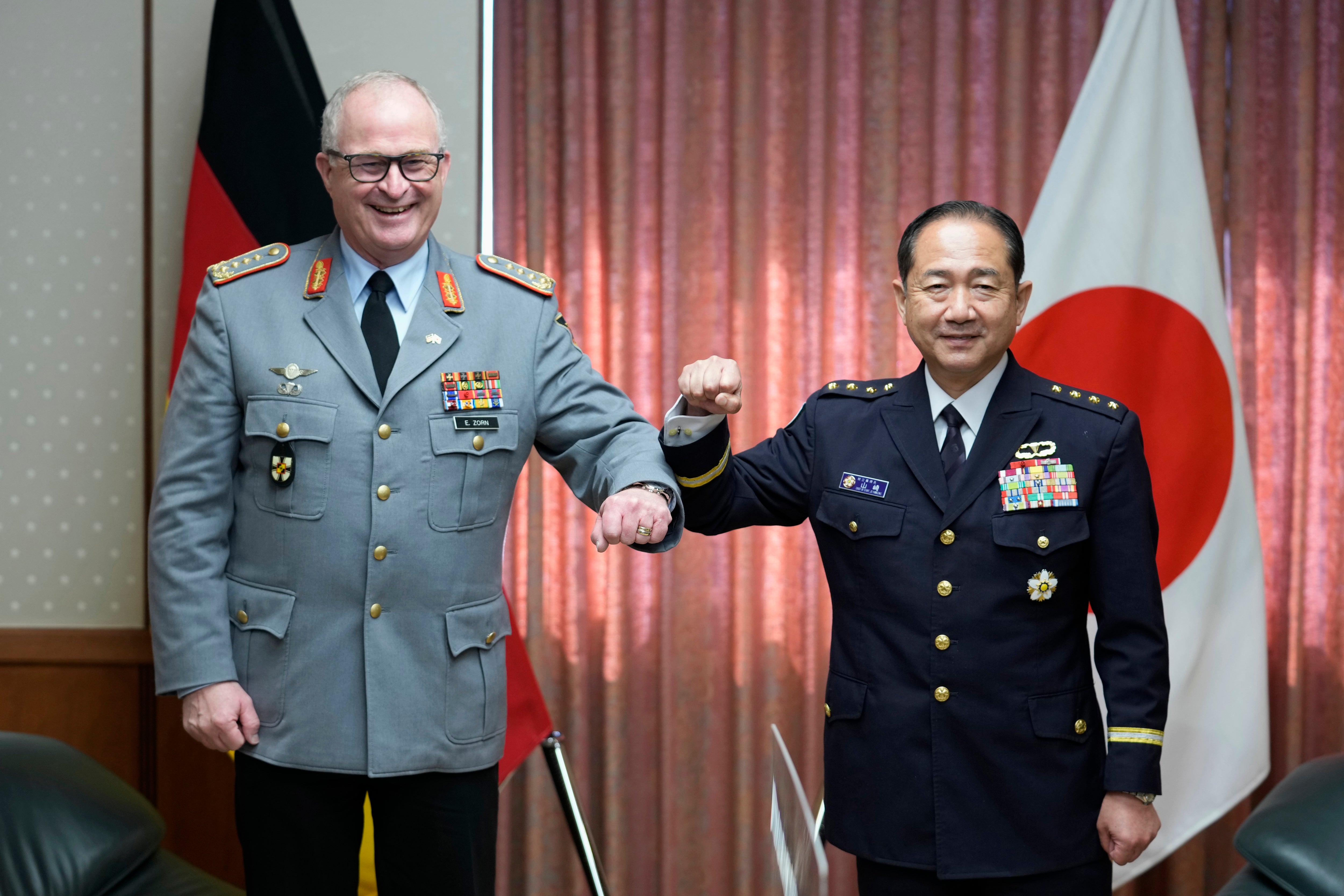Japan, Germany expand military ties as German warship visits
Japan's defense minister, Nobuo Kishi, says it will step up military cooperation with Germany in the Indo-Pacific region as he welcomed a port call by the first German warship to visit Japan in about 20 years

Defense Minister Nobuo Kishi on Friday said Japan will step up military cooperation with Germany in the Indo-Pacific region as he welcomed a port call by the first German warship to visit Japan in about 20 years.
The frigate Bayern is visiting Tokyo after two days of joint exercises with the Japanese Maritime Self-Defense Force destroyer Samidare in the Pacific Ocean amid increasingly assertive maritime activities by China in the region.
The ship's visit is “an important turning point” in pursuing a “free and open Indo-Pacific” and secure one of the world's most important shipping lanes, Kishi said after inspecting the frigate with German officials.
"It shows Germany's strong commitment to actively contribute to peace and stability in the Indo-Pacific,” he said.
The frigate left Germany in August for deployment in the Indo-Pacific as part of the country’s recent shift to the region and follows similar moves by other European countries including Britain, France and the Netherlands. Warships from those countries recently conducted joint naval exercises in the East and South China seas.
Germany adopted a defense guideline last year focusing on the Indo-Pacific region and has since stepped up its military ties with Japan. The two sides signed an agreement in March on the protection of classified information exchanges, and held their first security talks involving defense and foreign ministers in June.
“The Indo-Pacific is today one of the strategically most important regions of the world," Gen. Eberhard Zorn, chief of Germany’s armed forces, said at a joint news conference with Kishi. "Here important decisions over freedom, peace and wellbeing in the world are being made. Deploying our frigate to the Indo-Pacific makes clear that Germany stands up for our common values.”
China, which claims most of the disputed South China Sea as well as Japanese-held islands in the East China Sea, has defended its growing maritime activities and says it has the right to defend its sovereignty, security and development interests.
Japanese officials say Chinese vessels routinely violate Japanese territorial waters around the islands in the East China Sea, sometimes threatening fishing boats.
Zorn said the Bayern has conducted small-scale exercises with the militaries of eight countries since leaving Germany and made port calls at various locations including Guam and Australia.
Beginning in mid-November, the Bayern will conduct monitoring and surveillance under a U.N. Security Council resolution of maritime activities by North Korean ships, including possible ship-to-ship transfers of banned cargoes in regional seas.
___
Associated Press journalists Chisato Tanaka and Hiromi Tanoue contributed to this report.